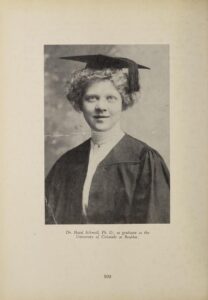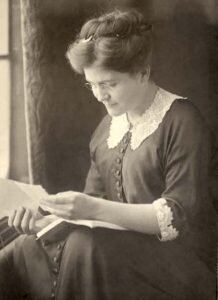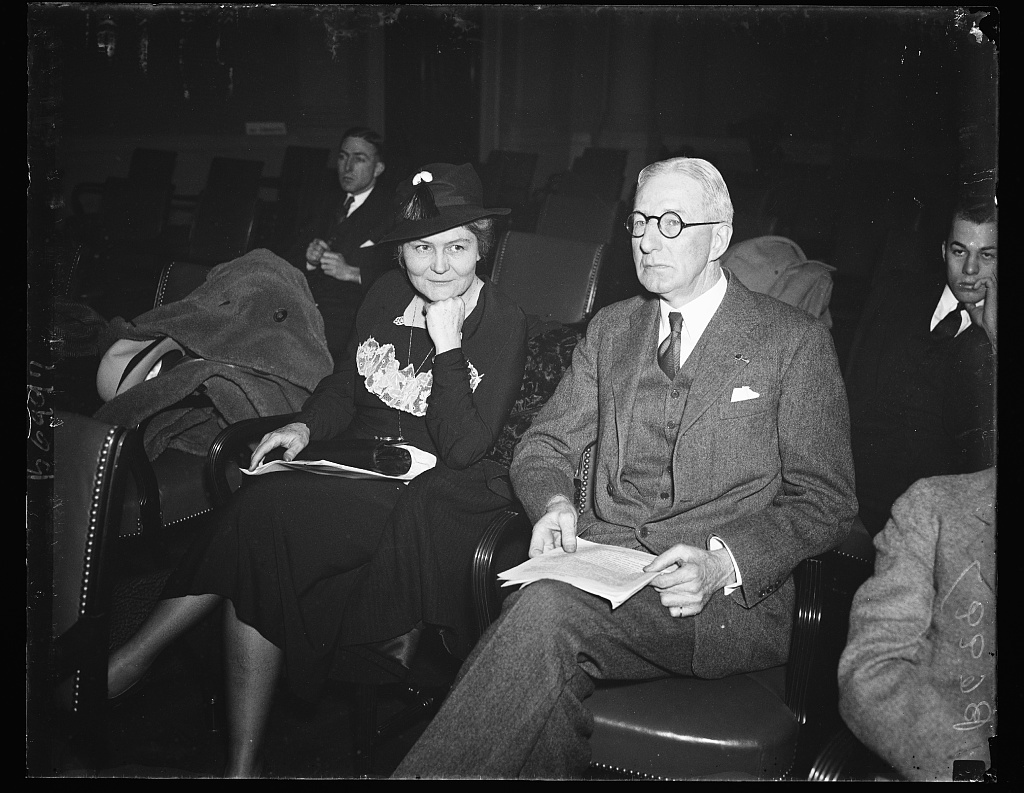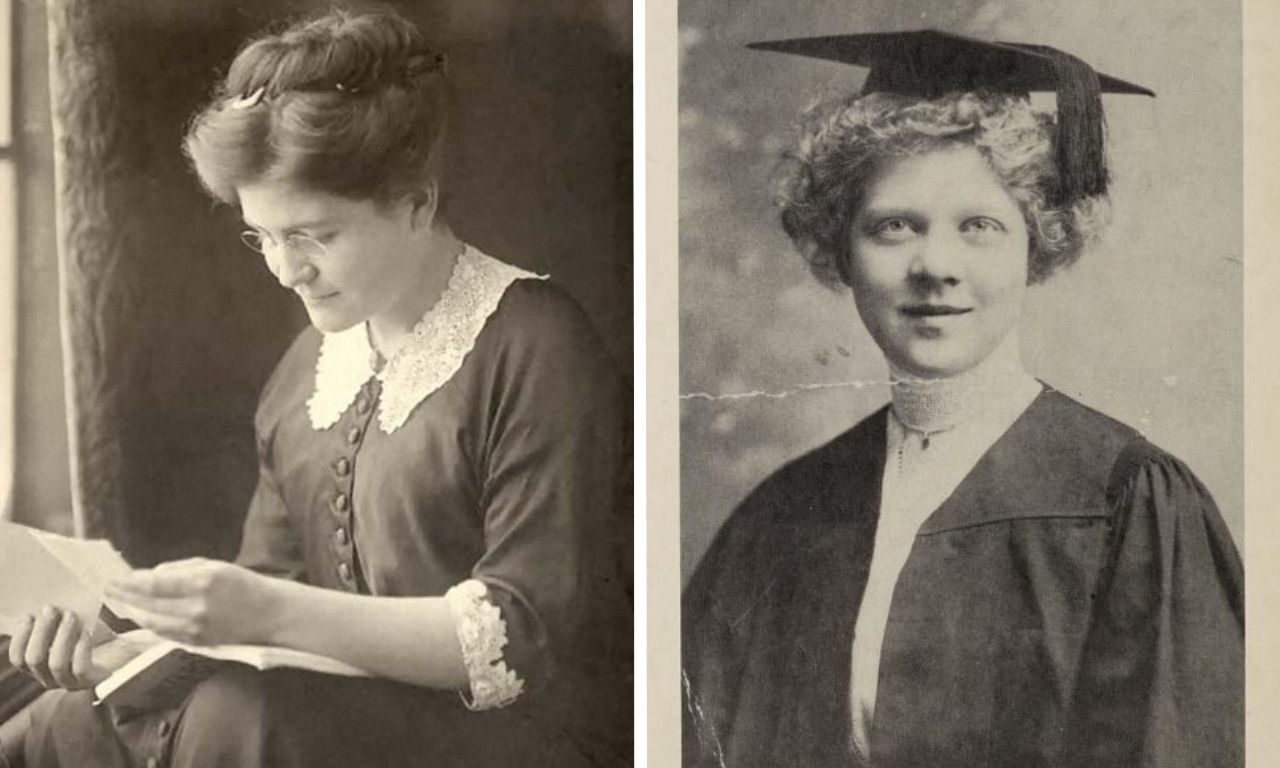Women’s History Month offers an important opportunity for us to shine a light on the extraordinary legacy of women in our county. Among these remarkable figures, Hazel Schmoll and Josephine Roche stand out as visionary leaders who defied the conventions of their era. Their unique stories, though diverse in nature, serve as enduring sources of inspiration, symbolizing determination, resilience, and progress. Their lives also intersect with the work of Boulder County Parks & Open Space through both natural history interpretation and mining history.
Hazel Schmoll: A Trailblazer in Academia and Environmental Conservation
 Born in 1891 in the quaint town of Ward, Colorado, Hazel Schmoll emerged as a trailblazer in an era when gender roles were rigidly defined. Raised by community-involved parents, Schmoll’s early life instilled in her a sense of responsibility and a commitment to making a difference. Her pursuit of education set her on an extraordinary path.
Born in 1891 in the quaint town of Ward, Colorado, Hazel Schmoll emerged as a trailblazer in an era when gender roles were rigidly defined. Raised by community-involved parents, Schmoll’s early life instilled in her a sense of responsibility and a commitment to making a difference. Her pursuit of education set her on an extraordinary path.
After completing the eighth grade in Ward, Schmoll ventured to Boulder to attend the State Preparatory School to continue her academic journey. Her excitement for knowledge led her to Vassar College in New York, where she became an outspoken advocate for women’s suffrage. In 1917, she enrolled in the botany program at the renowned University of Chicago where she would earn her master’s and doctorate degrees.
After pursuing higher education, Schmoll would return to Colorado to work with the State Historical and Natural History Society of Colorado and serve as the State Botanist from 1919 to 1935. Her contributions to botany and ecology elevated her to a position of distinction, earning her recognition in academia and the wider community. Beyond her scholarly achievements, Schmoll dedicated herself to educating the public about the wonders of the Colorado Rockies. In 1925, she was instrumental in the passing of the “Columbine Bill” which made it illegal to pick Colorado’s state flower on public lands. After retiring, she would continue to lead natural history guided tours in her hometown of Ward well into her seventies.
Josephine Roche: A Visionary in Social Reform
 Josephine Roche, born in 1886 into an affluent Boulder family, was destined to defy convention. Instead of leading a life of privilege, Roche’s upbringing ignited her passion for social reform and advocacy.
Josephine Roche, born in 1886 into an affluent Boulder family, was destined to defy convention. Instead of leading a life of privilege, Roche’s upbringing ignited her passion for social reform and advocacy.
After completing a doctorate in social work from the University of Denver, Roche embarked on a lifelong commitment to various social causes. Her notable career included roles with the United States Children’s Bureau, where she championed child welfare, and the United Mine Workers of America, where she fearlessly advocated for miners’ rights and safety. In 1928 she shattered gender norms by taking the helm of the Rocky Mountain Fuel Company, becoming one of the first women to lead a major corporation in the United States. Under her leadership, the Rocky Mountain Fuel Company was the first western coal company to sign a union contract with its miners and pay them an unheard of $7 per day wage.
Roche’s dedication extended into government service, where she became the first woman police officer and deputy sheriff in Colorado. Her unwavering commitment to social justice led her to enter politics, including a failed 1934 Colorado gubernatorial bid. She would not run for office again, but she was rewarded for her support of Franklin Roosevelt with an appointment to assistant secretary of the U.S. Treasury. In 1948, she would once again champion labor rights by becoming the director of the United Mine Workers pension fund, a position she would hold until she was 85 years old.
The legacies of Hazel Schmoll and Josephine Roche are deeply ingrained in Boulder County. Schmoll’s contributions to academia and ecology, and Roche’s dedication to social reform, continue to shape the history of Boulder County and inspire new generations. These women exemplify the power of determination and the enduring impact of those who break boundaries. Their stories stand as a timeless testament to the triumph of women who were truly ahead of their time.




